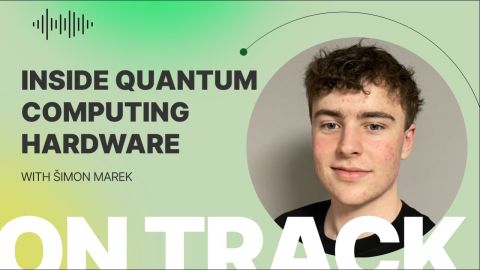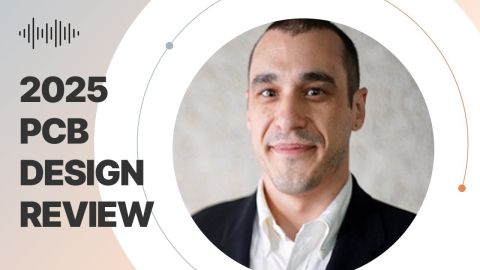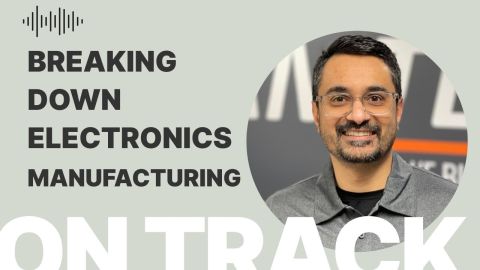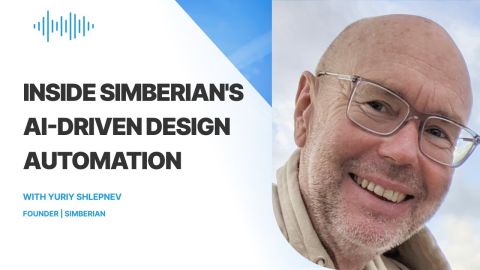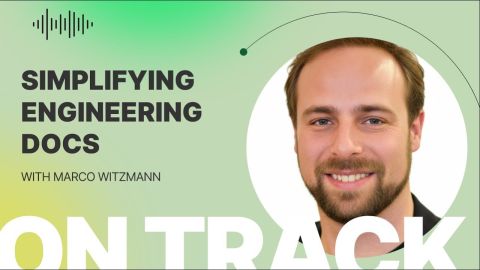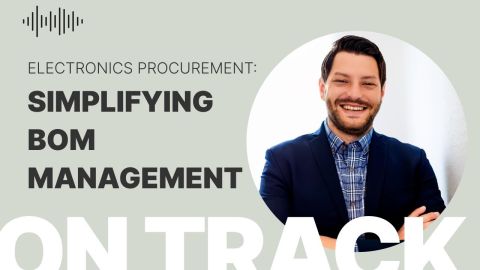Mark Forbes on the Evolution of Chip Technology and Origin Stories -
Welcome back to the OnTrack Podcast. Today we speak with Mark Forbes, Director of Product Marketing at Altium, about the history of IC development and how that directly impacted you and will continue to impact you and your design practices. Capturing some of the history is important so that we know why we do things that we may not have known happened 30 years ago - you’re really going to enjoy this deep dive into what’s happened over the last 30 years and how it impacts your career every day.
Listen to the Podcast:
Download this episode (right click and save)
Watch the video:

Show Highlights:
- Mark has spent his entire career in electronics, equally divided between hardware and software.
- PCB design has been dramatically affected over time by the trajectory of ICs.
- The 8080 microprocessor exploded the idea that we don’t have to design discretely, but could program a computer to do all our functions.
- The main effect of increased integration on PCB design is that so many functions have been shrunk into a single chip and how to get those out to other parts of the board, is a major problem.
- The higher speeds create more heat in these smaller spaces and heat dissipation/cooling is also a major problem.
- Geometry is a huge factor in why we are able to integrate more stuff on the same chip, for example in 1971, the geometry was 10 microns (µ); on the current Snapdragon, it’s 7 nanometres (nm). If you had a thousand-page book that represents 10 microns; one twentieth of one page is 7 nm.
- Now we’re running into some physical issues such as speed - the original 4004 ran at 740 kHz, and the Snapdragon runs at 2.9GHz. If you put that into perspective, if the 4004 was a car, and you’re going 60 miles ph, the Snapdragon is going 65 miles per second.
- Speed has become important because of EMI/RMI. Back in the day the 8080 ran at 1mHz, and an antenna was a few feet long, none of the traces on the board acted as resonant antennas so, there was no radiated signal - only radio designers were concerned with frequencies and gHz whereas now, these concepts apply to the vast majority of PCBs.
- We are getting near the physical limits that can’t be broken. For example, sometimes as you try to locate a memory on a pc board that’s too far from the processor, the electrons can’t get there in one clock cycle, which is revealed by data errors. We are now fighting the flight time of an electron.
- To increase speed there are only two things you can do: 1] more cores 2] change the geometry to accommodate physical limits which are the speed of light and the size of an atom.
- Every time we leap forward with the ICs, it directly impacts board design, how do we keep up with that? Ongoing engineering education; online trade magazines; manufacturer seminars.
- Curiosity is exceedingly important.
- Where are we headed? In 20 years we probably won’t be using electronics… there will be some fundamental breakthrough.
- Telling the stories of history will inspire more development, again, stay curious!
Links and Resources:
Charles Pfeil Presentation: Effective Methods for Advanced Routing
Customer success story of increased yield rate of corn
Learn, connect, and get inspired at AltiumLive 2019: Annual PCB Design Summit.
